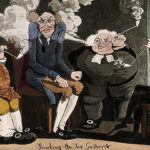In Larson v. Liberty Mutual Fire Insurance Co., the Ninth Circuit Court of Appeals affirmed that, under Hawaii law, unambiguous broad settlement release language and the two-year tort statute of limitations barred claims that Liberty Mutual Fire Insurance Co. somehow improperly handled a workers’ compensation claim. In February 2002, Lonnie Larson filed for workers’ compensation under his Liberty policy, claiming that he was struck by lightning during the course of ... Keep Reading »
Bad Faith
10th Circuit Finds No Coverage Under All-Risk Policy for Building Damage Caused by Soil Collapse Triggered by Burst Water Pipe
In Naabani Twin Stars, LLC v. St. Paul Fire & Marine Insurance Co., the Tenth Circuit Court of Appeals held that St. Paul Fire and Marine Insurance Co. has no duty to cover damage that occurred when a building’s underlying soil collapsed, but not the building itself, due to a burst water pipe under an adjacent parking lot. In July 2016, a waterline under a parking lot, near a building owned by Naabani Twin Stars LLC and Twin Stars Limited, ruptured. Two ... Keep Reading »
Florida’s “Totality of Circumstances” Bad Faith Analysis Should Consider Claimant’s Actions as a “Factor” but Not a “Focus”
A recent decision of the Eleventh Circuit Court of Appeals limits the Florida Supreme Court’s approach to evaluating whether an insurer committed bad faith in handling a claim against its insured. In Harvey v. Geico General Insurance Co., the Florida Supreme Court (in a 4–3 decision) stated, four times, that “the focus in a bad faith case is not on the actions of the claimant but rather on those of the insurer in fulfilling its obligations to the insured.” In the ... Keep Reading »
Arizona Federal Court Finds False Pretenses Exclusion Bars Coverage for Fraudulent Wire Transfer Under Professional Liability Policy
In Helms v. Hanover Insurance Group Inc., the U.S. District Court for the District of Arizona weighed in on the issue whether a professional liability policy provided insurance for a fraudulent wire transfer. This decision is not the first to tackle this issue, and like the other opinions issued across the country, Helms demonstrates that the answer to this somewhat thorny question depends heavily on the specific policy wording at issue. The insured plaintiffs, a ... Keep Reading »
Consent to Settle: Third Circuit Reminds Insureds to Obtain Prior Written Consent Required by a Claims-Made Policy or Face Claim Denial, and Rejects Bad Faith Claim in Absence of a Finding of Coverage Under New Jersey Law
In a non-precedential decision, the Third Circuit Court of Appeals upheld a district court’s grant of summary judgment to an errors and omissions insurer that declined to indemnify a settlement because the insured had settled the underlying lawsuit without obtaining the insurer’s prior written consent, “an express condition of coverage under the policy’s consent clause.” Interestingly, the court noted that the E&O insurer had paid the insured’s “defense costs to the ... Keep Reading »
“Specific” Means “Specific” – Florida’s Bad Faith Statute Must Be Strictly Construed
The purpose of Florida’s “bad faith” statute is to “avoid unnecessary bad faith litigation.” To that end, the statute provides a civil remedy for any person damaged by an insurer’s conduct. However, as a condition precedent to filing suit, the policyholder must provide appropriate information to the Department of Insurance and the insurer by filing and serving a civil remedy notice (CRN). The CRN must specify the policyholder’s complaint and provide the insurer with a ... Keep Reading »
Florida Supreme Court Defines Damages Recoverable by First-Party Insureds in Actions Alleging Breach of Policy
In Citizens Property Insurance Corp. v. Manor House, LLC, the Florida Supreme Court recently answered “no” to the following question certified as a matter of “great public importance”: In a first-party breach of insurance contract action brought by an insured against its insurer, not involving suit under section 624.155, Florida Statutes, does Florida law allow the insured to recover extra-contractual, consequential damages? The case involved a dispute over property ... Keep Reading »
Missouri Federal Court Finds New York Choice-of-Law Provision Does Not Inhibit Insured’s Assertion of Missouri-Specific Public Policy Statute Violation
In Maritz Holdings Inc. v. Certain Underwriters at Lloyd’s London, a federal court in Missouri denied an insurer’s motion to dismiss the insured’s assertion of a vexatious refusal to pay claim based on an obscure Missouri-specific public policy statute, despite the court’s acknowledgment that the subject insurance contracts were governed by their New York choice-of-law provisions. This insurance coverage dispute stemmed from alleged losses following two separate ... Keep Reading »
Florida Appellate Court Affirms Dismissal of First-Party Bad Faith Suit Based on Insured’s Deficient Statutory Pre-Suit Notice
In Julien v. United Prop. & Casualty Insurance Company, 45 Fla. L. Weekly D2199 (Fla. 4th DCA Sept. 23, 2020), Florida’s Fourth District Court of Appeals affirmed the dismissal of a first-party bad faith lawsuit due to the lack of specificity in the pre-suit civil remedy notice of insurer violations filed by the insured. Overview of Civil Remedy Notice Requirement In Florida, first-party bad faith claims are a creature of statute. No cause of action exists under ... Keep Reading »
Minnesota Supreme Court’s First Opinion on the State’s Bad Faith Statute
The Minnesota Supreme Court in the matter of Alison Joel Peterson v. Western National Mutual Insurance Company, 946 N.W.2d 903 (Minn. 2020) opined for the first time on the state’s bad faith statute (Minn. Stat. § 604.18) and weighed in on the interpretation of the two prongs contained within the statute. The statute provides the following two prongs that must be determined for a court to award bad faith damages to an insured against the insurer: the absence of a ... Keep Reading »
- « Previous Page
- 1
- 2
- 3
- 4
- …
- 7
- Next Page »









